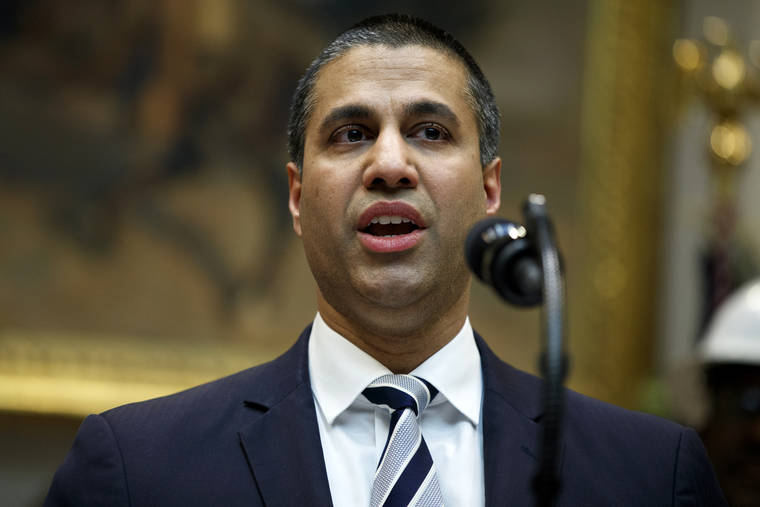NEW YORK — A key federal regulator says he backs T-Mobile’s $26.5 billion takeover of rival wireless carrier Sprint, a crucial step for the deal’s approval.
Federal Communications Commission Chairman Ajit Pai said Monday he supported the deal because the two companies promised to expand mobile internet access in rural areas and roll out 5G , the next generation of mobile networks.
While Pai’s backing is important, further steps remain. The full commission of three Republicans and two Democrats must still vote, and the Justice Department must also clear it. State attorneys general may also move against the combination.
Pai said Monday that the combination will help bring faster mobile broadband to rural Americans.
The companies have made promises on building out 5G and expanding rural broadband before, but now they are attaching timelines and agreeing to penalties if they fail to meet their commitments. For instance, the companies promise to make fast internet available to 99% of Americans within six years after the deal’s close.
T-Mobile US Inc. and Sprint Corp. also said Monday that they would sell Sprint’s prepaid cellphone brand Boost Mobile to address antitrust concerns.
Several public-interest advocates dismissed the companies’ promises Monday as not solving the issues posed by industry consolidation. Along with labor groups, the advocates have argued that the deal will lead to price increases and job cuts. Democratic lawmakers have also been skeptical of the companies’ promises.
Just because the FCC seems ready to approve the deal doesn’t mean the Justice Department will, as the two agencies have different criteria. The Justice Department evaluates deals on whether they harm competition and raise prices for consumers, while the FCC examines whether a merger fulfills “public interest” goals. Expanding internet access to more people could count as one such goal, for example.
David Cicilline, a Rhode Island Democrat who heads the House antitrust subcommittee, called on the Justice Department to require that Sprint and T-Mobile show that the deal won’t harm consumers.
“Empty promises will not make this transaction a good deal for American workers and consumers,” he said.
Sprint and T-Mobile have been talking about their 5G plans even before proposing their combination, so it’ll be tough to convince the Justice Department that the 5G buildout depends on it, said Amanda Wait, a partner at Norton Rose Fulbright and former Federal Trade Commission lawyer.
And even then, the Justice Department has to decide if those benefits are greater than any consumer harms.
Justice Department spokesman Jeremy Edwards declined to comment Monday.
Sprint and T-Mobile argue that the combination will lead to better 5G service. They have made promises before to create U.S. jobs and build a home-internet business to compete with cable companies as well as Verizon and AT&T. They’ve also promised not to raise prices for three years.
The Obama administration rebuffed the companies’ earlier effort to merge, as well as an attempted deal between AT&T and T-Mobile, on concerns that such deals would hurt competition in the wireless industry.
Shares of T-Mobile jumped 5.5% in afternoon trading, while Sprint’s stock soared 22%.
———
Michelle Chapman reported from Newark, New Jersey.


